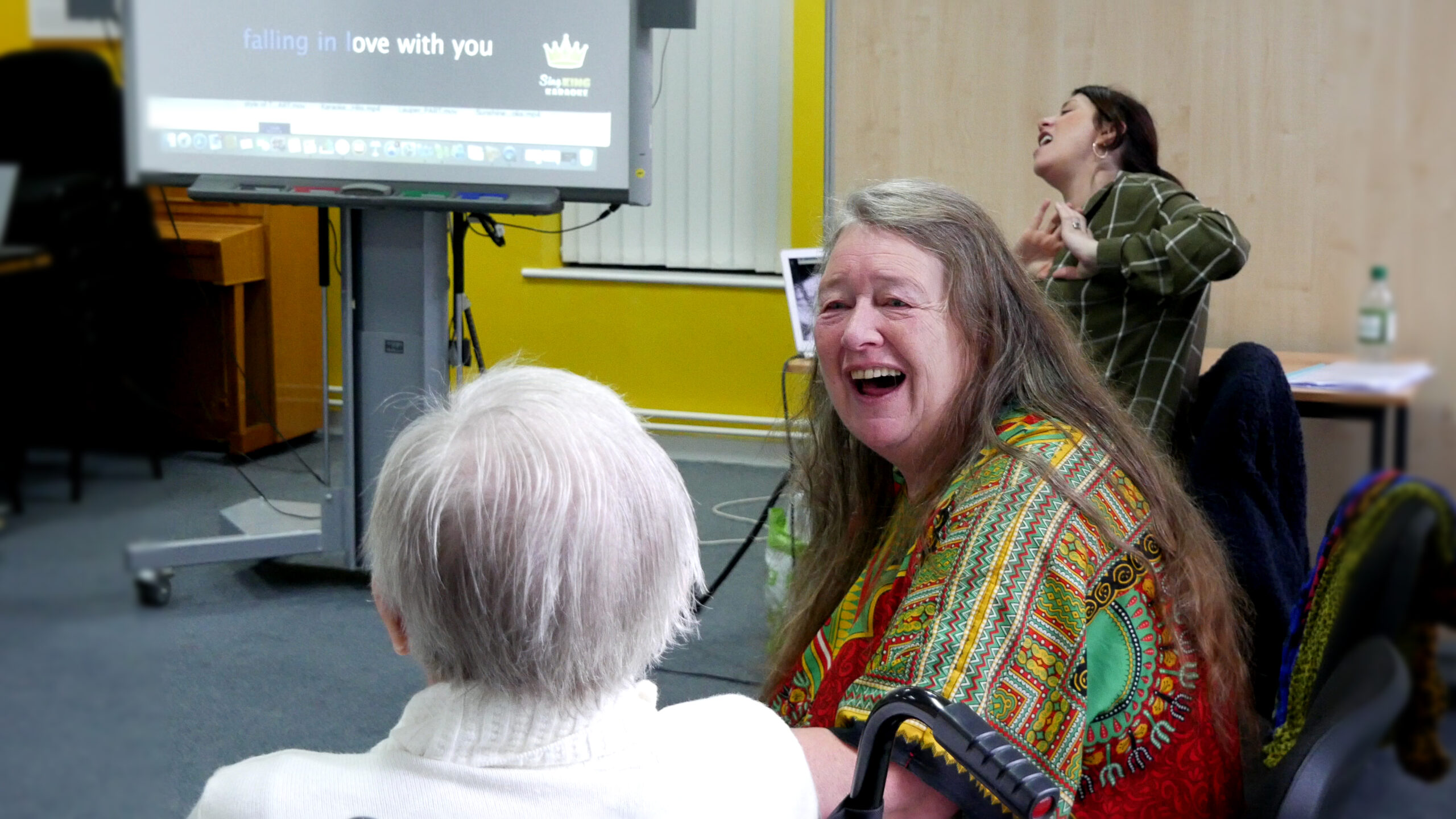Adapting social activities for people with dementia

Kym Ward, Dementia Project Coordinator at ARC NWC Member The Brain Charity, outlines the challenges of adapting social activities for people with dementia during the COVID-19 pandemic
Prior to March and the rise of Covid-19, the Brain Charity was running music-based therapy for people living with dementia, in a variety of different settings around Merseyside. These workshops are very popular – whilst many people know the benefits of singing for the brain, engagement in music can be so inclusive for people who cannot communicate as they once did. Dancing along to a tune, with others, activates multiple parts of the brain, ‘lighting up’ neural circuits. These workshops are really innovative, as they combined Speech & Language therapy with singing, and Physiotherapy with dance, including exercises which focussed on mitigating muscle weakness, the dysphagia and loss of motor ability and agility that is caused by Dementia and Parkinson’s. So, it was with heavy hearts that we paused the workshops on the 11th of March, knowing that our participants would suffer the loss of the music-based therapy, as much as the social engagement – but our priority has to be keeping the most vulnerable members of our society safe.
In a lot of ways, people living with dementia and their families have been worst hit by this pandemic. London School of Economics and University College London’s dire report at the beginning of September, that quarter of all people who died of Covid in England and Wales, had dementia, is heartbreaking. And we know that all too well – many of the participants of our workshops have sadly passed away in the past months. Our hopes of reassembling the workshops which we broke in the middle of the 12-week course, seem unlikely.
In the intervening time between the beginning of the first lockdown and now, we have been in regular communication with many of our partner organisations, asking care homes and day care centres how they are coping with the restrictions and lack of activities coming in from the outside world. Some report having had to stop family visits altogether for periods, some have built Perspex screens or utilised the layout of their buildings in clever ways to minimise risk and keep safe barriers between residents and visitors. But, understandably, activities cannot run as they once did. In the home setting, most of the people I have spoken to have simply had to stop all social activities which they, or the person living with dementia, were participating in. This of course has left gaps in the schedules which were so often providing much-needed respite for carers, and enjoyment and stability for people living with dementia.
The Brain Charity has tried a few different tacks over the course of the last months. Our professional singer has sung to individual residents down a wiped-clean phone. We’ve had dance sessions in individual’s houses, conducted over zoom. But a prevailing issue remains – for this demographic of people, the barriers to technology coupled with cognitive capacity, make this kind of engagement very tricky.
For people in the home setting, it can be impossible to engage with the tech unless they have a savvy son or daughter, or younger family member who happens to live with them. There is a generational gap in technological literacy, which we can sometimes forget about in the rush to think of useful online alternatives.
Of course, some people living with dementia are more than capable of learning how to install and use new software. However – if you think of the number of steps and questions or permissions it takes to install and use zoom on a tablet or phone, it becomes clear why for a lot of older generations, it is simply too hard to fathom. On top of this, expecting people living with dementia to recognise that there is a real, live person at the other end of a rectangle, who wants to speak to and engage them in dance?! At times this has had comic effects, at times very upsetting ones. For so many of the people we are trying to reach, video calling is a new technology which was not invented in the time they may feel they are living in.
So, while the singing down the phone did cheer residents up, some did not recognise there was a real person on the other end of the line. The benefits of being all together in a room, the atmosphere, the important Speech and Language therapy feedback, is lost. Likewise with the physiotherapy – to have both the dancer and the Physio on the same zoom call with the participant, is not really feasible, nor are group sessions. This is the all too real digital poverty divide which is increasingly being created as the pandemic continues.
Nevertheless, The Brain Charity is committed to fighting loneliness and isolation, for people with neurological conditions. We can’t forget the people who are stuck at home, isolating and shielding. The task for us is to find more analogue ways of continuing to reach out and offer these therapies, at a safe distance, as Winter approaches. We won’t stop trying.
Links
Dance:
Singing:
Kym Ward
Dementia Project Co-ordinator
The Brain Charity
